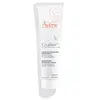KORRES Greek Yoghurt Nourishing Probiotic Intense Cream Versus Avène Cicalfate+ Restorative Protective Cream
What's inside
What's inside
 Key Ingredients
Key Ingredients

 Benefits
Benefits

 Concerns
Concerns

 Ingredients Side-by-side
Ingredients Side-by-side

Water
Skin ConditioningGlycerin
HumectantCaprylic/Capric Triglyceride
MaskingCetearyl Alcohol
EmollientGlyceryl Stearate Citrate
EmollientC13-15 Alkane
SolventDistarch Phosphate
AbsorbentHydrogenated Ethylhexyl Olivate
EmollientPassiflora Incarnata Seed Oil
Skin ProtectingPropanediol
SolventSqualane
EmollientEthyl Linoleate
EmollientSalvia Hispanica Seed Oil
MoisturisingAloe Barbadensis Leaf Juice Powder
Skin ConditioningAlgin
MaskingAlpha-Glucan Oligosaccharide
CleansingAmmonium Acryloyldimethyltaurate/Vp Copolymer
Argania Spinosa Kernel Oil
EmollientAscorbic Acid
AntioxidantAscorbyl Palmitate
AntioxidantBisabolol
MaskingButyrospermum Parkii Butter
Skin ConditioningEuphorbia Cerifera Wax
Caprylyl Glycol
EmollientChlorella Vulgaris Extract
Skin ConditioningCrambe Abyssinica Seed Oil
Skin ConditioningDisodium Phosphate
BufferingEthylhexylglycerin
Skin ConditioningGlyceryl Caprylate
EmollientGlyceryl Polyacrylate
Glyceryl Stearate
EmollientGlycine Soja Oil
EmollientHelianthus Annuus Seed Oil
EmollientHexyldecyl Stearate
EmollientHydrogenated Olive Oil Unsaponifiables
EmollientHydrogenated Rapeseed Oil
EmollientHydrogenated Vegetable Oil
EmollientHydrolyzed Sodium Hyaluronate
Skin ConditioningLactic Acid
BufferingLactobacillus
Skin ConditioningLaminaria Digitata Extract
Skin ProtectingLecithin
EmollientMaltodextrin
AbsorbentMaris Aqua
HumectantMenthyl Lactate
MaskingOlus Oil
EmollientPancratium Maritimum Extract
BleachingPanthenol
Skin ConditioningPentylene Glycol
Skin ConditioningPhenethyl Alcohol
MaskingPolyglyceryl-3 Diisostearate
EmulsifyingPolymnia Sonchifolia Root Juice
Skin ConditioningPotassium Phosphate
BufferingPrunus Armeniaca Kernel Oil
MaskingPullulan
Saccharide Isomerate
HumectantSerine
MaskingSodium Carboxymethyl Beta-Glucan
CleansingSodium Gluceptate
Sodium Hyaluronate
HumectantTocopherol
AntioxidantTocopheryl Acetate
AntioxidantTrehalose
HumectantUrea
BufferingYogurt
Skin ProtectingYogurt Powder
Zingiber Officinale Root Extract
MaskingBenzyl Alcohol
PerfumingPhenoxyethanol
PreservativeSalicylic Acid
MaskingSorbic Acid
PreservativeParfum
MaskingWater, Glycerin, Caprylic/Capric Triglyceride, Cetearyl Alcohol, Glyceryl Stearate Citrate, C13-15 Alkane, Distarch Phosphate, Hydrogenated Ethylhexyl Olivate, Passiflora Incarnata Seed Oil, Propanediol, Squalane, Ethyl Linoleate, Salvia Hispanica Seed Oil, Aloe Barbadensis Leaf Juice Powder, Algin, Alpha-Glucan Oligosaccharide, Ammonium Acryloyldimethyltaurate/Vp Copolymer, Argania Spinosa Kernel Oil, Ascorbic Acid, Ascorbyl Palmitate, Bisabolol, Butyrospermum Parkii Butter, Euphorbia Cerifera Wax, Caprylyl Glycol, Chlorella Vulgaris Extract, Crambe Abyssinica Seed Oil, Disodium Phosphate, Ethylhexylglycerin, Glyceryl Caprylate, Glyceryl Polyacrylate, Glyceryl Stearate, Glycine Soja Oil, Helianthus Annuus Seed Oil, Hexyldecyl Stearate, Hydrogenated Olive Oil Unsaponifiables, Hydrogenated Rapeseed Oil, Hydrogenated Vegetable Oil, Hydrolyzed Sodium Hyaluronate, Lactic Acid, Lactobacillus, Laminaria Digitata Extract, Lecithin, Maltodextrin, Maris Aqua, Menthyl Lactate, Olus Oil, Pancratium Maritimum Extract, Panthenol, Pentylene Glycol, Phenethyl Alcohol, Polyglyceryl-3 Diisostearate, Polymnia Sonchifolia Root Juice, Potassium Phosphate, Prunus Armeniaca Kernel Oil, Pullulan, Saccharide Isomerate, Serine, Sodium Carboxymethyl Beta-Glucan, Sodium Gluceptate, Sodium Hyaluronate, Tocopherol, Tocopheryl Acetate, Trehalose, Urea, Yogurt, Yogurt Powder, Zingiber Officinale Root Extract, Benzyl Alcohol, Phenoxyethanol, Salicylic Acid, Sorbic Acid, Parfum
Water
Skin ConditioningCaprylic/Capric Triglyceride
MaskingParaffinum Liquidum
EmollientGlycerin
HumectantHydrogenated Vegetable Oil
EmollientZinc Oxide
Cosmetic ColorantPropylene Glycol
HumectantPolyglyceryl-2 Sesquiisostearate
EmulsifyingPEG-22/Dodecyl Glycol Copolymer
EmulsifyingAluminum Stearate
Cosmetic ColorantAquaphilus Dolomiae Ferment Filtrate
Skin ConditioningArginine
MaskingBeeswax
Emulsion StabilisingCopper Sulfate
Skin ConditioningMagnesium Stearate
Cosmetic ColorantMicrocrystalline Wax
Emulsion StabilisingTromethamine
BufferingZinc Sulfate
AntimicrobialWater, Caprylic/Capric Triglyceride, Paraffinum Liquidum, Glycerin, Hydrogenated Vegetable Oil, Zinc Oxide, Propylene Glycol, Polyglyceryl-2 Sesquiisostearate, PEG-22/Dodecyl Glycol Copolymer, Aluminum Stearate, Aquaphilus Dolomiae Ferment Filtrate, Arginine, Beeswax, Copper Sulfate, Magnesium Stearate, Microcrystalline Wax, Tromethamine, Zinc Sulfate
 Reviews
Reviews

Ingredients Explained
These ingredients are found in both products.
Ingredients higher up in an ingredient list are typically present in a larger amount.
This ingredient is an emollient, solvent, and texture enhancer. It is considered a skin-softener by helping the skin prevent moisture loss.
It helps thicken a product's formula and makes it easier to spread by dissolving clumping compounds.
Caprylic Triglyceride is made by combining glycerin with coconut oil, forming a clear liquid.
While there is an assumption Caprylic Triglyceride can clog pores due to it being derived from coconut oil, there is no research supporting this.
Learn more about Caprylic/Capric TriglycerideGlycerin is already naturally found in your skin. It helps moisturize and protect your skin.
A study from 2016 found glycerin to be more effective as a humectant than AHAs and hyaluronic acid.
As a humectant, it helps the skin stay hydrated by pulling moisture to your skin. The low molecular weight of glycerin allows it to pull moisture into the deeper layers of your skin.
Hydrated skin improves your skin barrier; Your skin barrier helps protect against irritants and bacteria.
Glycerin has also been found to have antimicrobial and antiviral properties. Due to these properties, glycerin is often used in wound and burn treatments.
In cosmetics, glycerin is usually derived from plants such as soybean or palm. However, it can also be sourced from animals, such as tallow or animal fat.
This ingredient is organic, colorless, odorless, and non-toxic.
Glycerin is the name for this ingredient in American English. British English uses Glycerol/Glycerine.
Learn more about GlycerinHydrogenated Vegetable Oil is created by adding hydrogen to vegetable oil in order to give it more stability. This process also raises the melting point of vegetable oil. In cosmetics, it is an emollient.
Emollients help soothe and soften the skin. They do this by creating a protective film on your skin. This barrier helps trap moisture and keeps your skin hydrated. Emollients may be effective at treating dry or itchy skin.
The term "Hydrogenated Vegetable Oil" is an umbrella term and can refer to a variety of vegetable oils and blends of: sunflower oil, soybean oil, olive oil, coconut oil, palm oil, and more.
Due to the differences in vegetables, the benefits may vary.
Learn more about Hydrogenated Vegetable OilWater. It's the most common cosmetic ingredient of all. You'll usually see it at the top of ingredient lists, meaning that it makes up the largest part of the product.
So why is it so popular? Water most often acts as a solvent - this means that it helps dissolve other ingredients into the formulation.
You'll also recognize water as that liquid we all need to stay alive. If you see this, drink a glass of water. Stay hydrated!
Learn more about Water